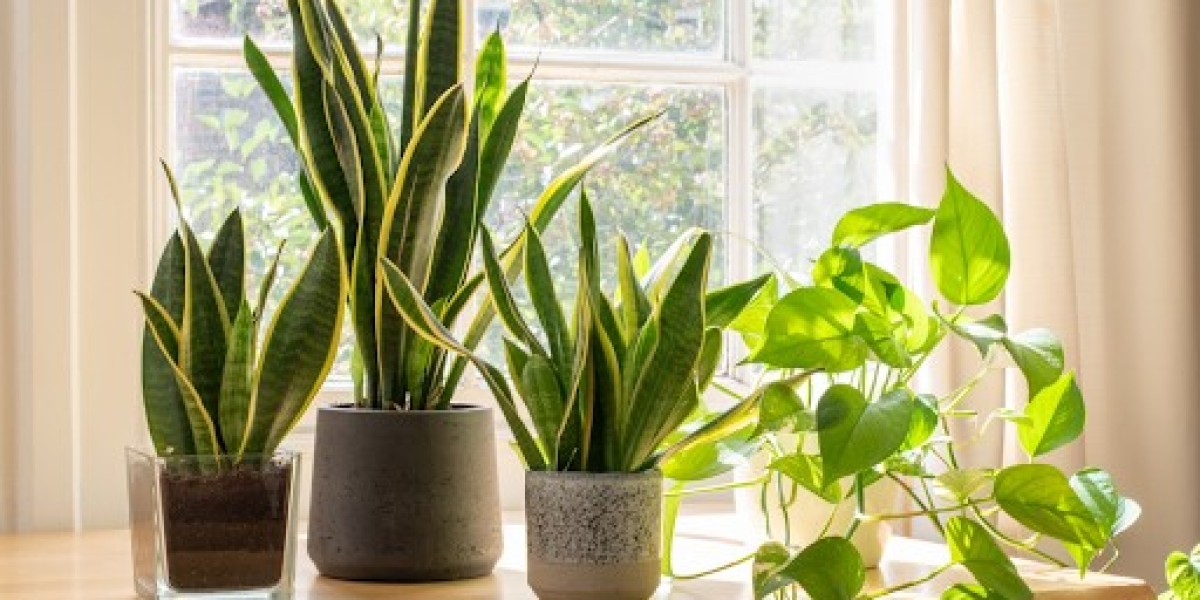In the world of indoor gardening, ficus plants stand out as an exceptional choice for those looking to infuse their living spaces with a touch of nature's elegance. These green giants, often considered among the finest houseplants, offer many benefits that can transform your home into a thriving oasis. In this blog post, we'll explore the beauty and advantages of ficus plants while highlighting their compatibility with another favourite, aglaonemas.
1. Ficus Plants: Nature's Finest Houseguests
Ficus plants, known for their lush and vibrant foliage, are a testament to the wonders of indoor gardening. Their graceful stature and rich green leaves have made them a popular choice for home decor. Ficus plants are available in various species, each with its own unique charm. Some of the most common ficus species include the Ficus lyrata (fiddle leaf fig), Ficus elastica (rubber plant), and Ficus benjamina (weeping fig).
2. Benefits of Ficus Plants
Ficus plants bring an array of benefits to your indoor space:
- Air Purification: Ficus plants are natural air purifiers. They help remove common indoor pollutants like formaldehyde and xylene, contributing to cleaner and healthier air.
- Aesthetic Appeal: The lush, green foliage of ficus plants adds an element of beauty to your home decor. Their vibrant leaves create a stunning focal point in any room.
- Low Maintenance: Ficus plants are relatively easy to care for, making them suitable for both novice and experienced indoor gardeners. They thrive with minimal effort, provided their basic needs are met.
- Improved Humidity: Ficus plants release moisture into the air, increasing humidity levels in your home. This can be especially beneficial during dry winter months.
- Stress Reduction: The presence of greenery in your living space has been shown to reduce stress and enhance overall well-being.
3. Complementing Ficus with Aglaonemas
Aglaonemas, commonly known as "Chinese evergreens," are another group of houseplants that pair exceptionally well with ficus plants. These two houseplants can create a harmonious and visually appealing indoor garden when placed together.
- Colour Contrast: Aglaonemas come in a variety of leaf patterns and colours, including shades of green, silver, and red. These striking colours can complement the deep green foliage of ficus plants.
- Similar Care Requirements: Both ficus plants and aglaonemas have similar care requirements. They thrive in bright, indirect light and prefer consistent watering. This compatibility makes them easy to care for together.
- Air Quality: Aglaonemas are also excellent air-purifying plants. When combined with ficus plants, they further enhance your indoor air quality.
4. Caring for Ficus Plants
To ensure your ficus plants thrive, here are some essential care tips:
- Light: Ficus plants prefer bright, indirect sunlight. Avoid placing them in direct sunlight, as it can scorch their leaves.
- Watering: Water your ficus when the top inch of soil feels dry. Ensure proper drainage to prevent waterlogging.
- Pruning: Regularly prune your ficus to maintain its shape and encourage healthy growth.
- Repotting: Ficus plants benefit from repotting when they outgrow their current containers. Use a well-draining potting mix.
- Pest Control: Keep an eye out for common indoor pests, such as spider mites or scale insects, and treat them promptly.
Conclusion
Ficus plants are more than just houseplants; they are beautiful additions to your home that bring the outdoors inside. Their aesthetic appeal, air-purifying qualities, and compatibility with aglaonemas make them a perfect choice for any indoor gardener. As you embrace the benefits of ficus plants and the delightful combination with aglaonemas, you'll create a green haven that enhances your well-being and adds a touch of nature's charm to your living space.


